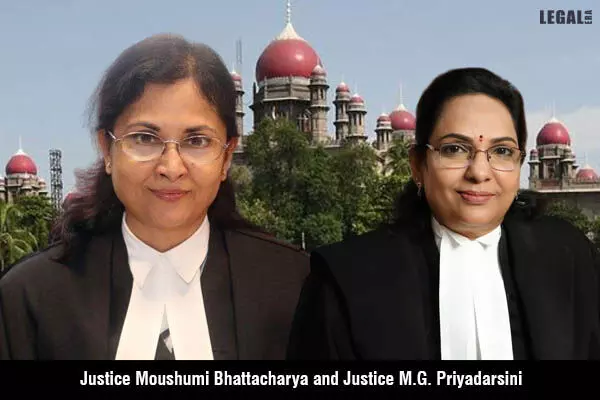- Home
- News
- Articles+
- Aerospace
- Artificial Intelligence
- Agriculture
- Alternate Dispute Resolution
- Arbitration & Mediation
- Banking and Finance
- Bankruptcy
- Book Review
- Bribery & Corruption
- Commercial Litigation
- Competition Law
- Conference Reports
- Consumer Products
- Contract
- Corporate Governance
- Corporate Law
- Covid-19
- Cryptocurrency
- Cybersecurity
- Data Protection
- Defence
- Digital Economy
- E-commerce
- Employment Law
- Energy and Natural Resources
- Entertainment and Sports Law
- Environmental Law
- Environmental, Social, and Governance
- Foreign Direct Investment
- Food and Beverage
- Gaming
- Health Care
- IBC Diaries
- In Focus
- Inclusion & Diversity
- Insurance Law
- Intellectual Property
- International Law
- IP & Tech Era
- Know the Law
- Labour Laws
- Law & Policy and Regulation
- Litigation
- Litigation Funding
- Manufacturing
- Mergers & Acquisitions
- NFTs
- Privacy
- Private Equity
- Project Finance
- Real Estate
- Risk and Compliance
- Student Corner
- Take On Board
- Tax
- Technology Media and Telecom
- Tributes
- Viewpoint
- Zoom In
- Law Firms
- In-House
- Rankings
- E-Magazine
- Legal Era TV
- Events
- Middle East
- Africa
- News
- Articles
- Aerospace
- Artificial Intelligence
- Agriculture
- Alternate Dispute Resolution
- Arbitration & Mediation
- Banking and Finance
- Bankruptcy
- Book Review
- Bribery & Corruption
- Commercial Litigation
- Competition Law
- Conference Reports
- Consumer Products
- Contract
- Corporate Governance
- Corporate Law
- Covid-19
- Cryptocurrency
- Cybersecurity
- Data Protection
- Defence
- Digital Economy
- E-commerce
- Employment Law
- Energy and Natural Resources
- Entertainment and Sports Law
- Environmental Law
- Environmental, Social, and Governance
- Foreign Direct Investment
- Food and Beverage
- Gaming
- Health Care
- IBC Diaries
- In Focus
- Inclusion & Diversity
- Insurance Law
- Intellectual Property
- International Law
- IP & Tech Era
- Know the Law
- Labour Laws
- Law & Policy and Regulation
- Litigation
- Litigation Funding
- Manufacturing
- Mergers & Acquisitions
- NFTs
- Privacy
- Private Equity
- Project Finance
- Real Estate
- Risk and Compliance
- Student Corner
- Take On Board
- Tax
- Technology Media and Telecom
- Tributes
- Viewpoint
- Zoom In
- Law Firms
- In-House
- Rankings
- E-Magazine
- Legal Era TV
- Events
- Middle East
- Africa
Telangana High Court Affirms Commercial Court's Jurisdiction To Hear Section 37 Arbitration Appeals

Telangana High Court Affirms Commercial Court's Jurisdiction To Hear Section 37 Arbitration Appeals
The Telangana High Court division bench, comprising Justices Moushumi Bhattacharya and M.G. Priyadarsini, has ruled that commercial courts are competent to hear Commercial Original Petitions (C.O.P.) arising under Section 37 of the Arbitration and Conciliation Act, 1996, provided they meet the criteria of specified value, territorial jurisdiction, and the nature of the dispute.
The case involved a Civil Revision Petition filed by Narayana Educational Institutions (Petitioner) challenging an order from the Telangana Regional Micro and Small Enterprises Facilitation Council (Council). The Petitioner sought to condone a delay in filing a Commercial Original Petition against the Council's order, which had dismissed an interlocutory application under Section 17 of the Arbitration Act. The Petitioner's appeal was directed at the Commercial Court, which led to the matter being brought before the High Court.
The central issue was whether the Commercial Court was the appropriate forum to hear the C.O.P. under Section 37(2)(b) of the Arbitration Act. The Petitioner initially argued that the C.O.P. was improperly filed before the Commercial Court, claiming that the application under Section 17(1) was not maintainable, and thus, the Commercial Court lacked jurisdiction.
The High Court affirmed that the Commercial Court was the proper venue to entertain the C.O.P. The bench noted that the Commercial Court at Ranga Reddy District, constituted under the Commercial Courts Act, 2015, had jurisdiction under Section 6 of the Act, and no issues of competence were identified in terms of value, territorial reach, and the commercial nature of the dispute.
The Court dismissed the Petitioner’s claims that the Commercial Court lacked inherent jurisdiction. It also criticized the Petitioner’s conduct as manipulative, emphasizing that the petitioner could not challenge the jurisdiction of a court it had actively engaged with. The High Court reinforced the principle that a party cannot benefit from its own procedural wrongs.
The High Court highlighted that while its powers under Article 227 of the Constitution are extensive, they are not without limits and should be exercised cautiously, avoiding re-evaluation of evidence and focusing on serious breaches of duty or fundamental legal principles.
The Telangana High Court concluded that the Commercial Court was correctly vested with the power to entertain the C.O.P., and dismissed the Civil Revision Petition as not maintainable. The Court affirmed the Commercial Court’s decision and emphasized the importance of maintaining procedural integrity and jurisdictional appropriateness in arbitration matters.



